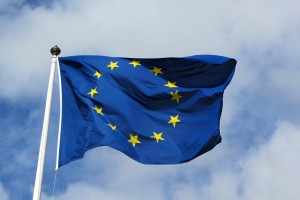
After more than 40 years of operation, DTVE is closing its doors and our website will no longer be updated daily. Thank you for all of your support.
EU reaches agreement on SatCab directive
 The European Union institutions have reached a political agreement on access to online TV and radio services across borders as part of a new SatCab directive.
The European Union institutions have reached a political agreement on access to online TV and radio services across borders as part of a new SatCab directive.
The changes agreed by the European Commission, Parliament and European Council introduce the country of origin principle to enable licensing of rights for programmes that broadcasters want to offer via their catch-up and other online linear and on-demand services, allowing them to make radio programmes, TV news and current affairs programmes and their own fully-financed original productions available across the EU.
Rights will still need to be cleared, but the directive will facilitate this rights clearance by allowing broadcasting organisations to clear all relevant rights in the member state of their principal establishment. The content portability rules are less extensive than those originally proposed by the Commission , after the European parliament voted to limit the application of the ‘country of origin’ principle that would enable this to news and current affairs programming only at the end of last year.
The new rules also provide a mechanism to facilitate the licensing of rights in the case of retransmission of radio and TV programmes, which includes retransmission services provided over the internet under certain conditions.
According to the European Council, for the types of retransmissions covered by the directive, the rights to works and other subject matter contained in the broadcast shall have to be cleared through a collective management society. The collective management society in question shall also be entitled to clear rights belonging to rightsholders who have not transferred their rights to it.
The Commission says that this measure is expected to contribute to a wider distribution of radio and TV channels.
Finally, the EU institutions have agreed to tackle ‘direct injection’, where broadcasters transmit their signals direct to distributors without those signals being publicly visible. Rights-holders have alleged that broadcasters have used this as a loophole to avoid paying copyright licence fees, which apply to works ‘communicated to the public’.
The European Council said that in the case of direct injection, only a single act of communication to the public is deemed to occur. This means that both the broadcaster and the signal distributor will have to clear the underlying rights.
According to the EC, the new rules will make sure that right holders are “adequately remunerated” when their works are used in programmes transmitted through direct injection, and will provide legal certainty to broadcasters and distributors involved in the process.
Vice-president for the Digital Single Market Andrus Ansip said: “I am very pleased we reached yet another agreement that brings us closer to a functioning Digital Single Market. The updated broadcasting rules are a big part of the puzzle. This regulation has the potential to unlock a large amount of broadcast content across borders, benefitting the 41% of Europeans who watch TV online but also the 20 million EU citizens who were born in a different EU country from the one they live in”.
Commissioner for Digital Economy and Society Mariya Gabriel said: “Today’s agreement is a double win for European’s cultural diversity: citizens will have better access to Europe’s rich content, and creators and authors will be adequately rewarded for their content.”
The European institutions have agreed that the SatCab rules will take the form of a directive, which must be transposed into national law by member states, rather than a regulation – something that was previously proposed – that must be enforced in all member states simultaneously.
The proposed SatCab directive is separate from the more controversial copyright directive, trilogue negotiations for which are set to conclude today. A European Council spokesman said that it remained to be seen whether a compromise could be reached over the most controversial aspects of the proposed directive – Articles 11 and 13 – as well as some other issues where the views of the European Parliament have diverged to some extent from those of the Council.
The copyright directive has been the subject of frantic lobbying by tech giants vehemently opposed to Article 13, which will see web companies such as Facebook, Twitter and YouTube forced to pay for the work of artists and journalists that appear on their sites, and use filtering systems to block copyrighted content appearing without authorisation.


